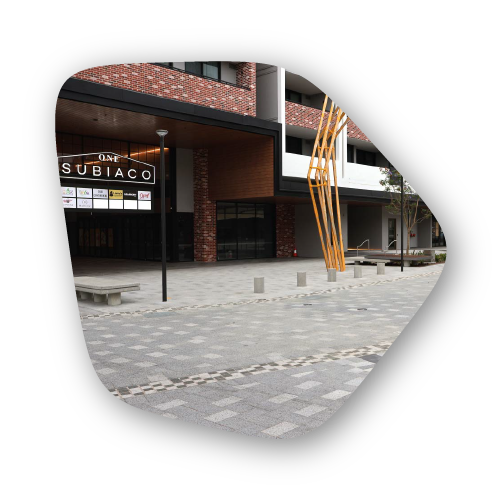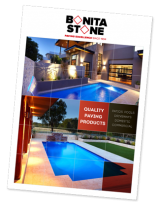
Understanding The Durability Of Different Paving Materials
When planning any outdoor space—whether it’s a driveway, patio, garden path, or public walkway—the durability of your chosen paving material plays a crucial role in determining both the long-term appearance and the cost-effectiveness of the project. With a wide variety of paving options available on the market, understanding how each material stands up to time, wear, and environmental conditions can help you make a smart, lasting investment.
In this article, we’ll take a closer look at some of the most commonly used paving materials in Australia, comparing their durability, expected lifespan, and maintenance needs to help you make an informed decision that suits both your environment and lifestyle.
1. Concrete
Durability: 🔴 High
Expected Lifespan: 20–40 years
Concrete is one of the most popular and versatile paving materials available. Its strength and structural integrity make it suitable for everything from driveways and footpaths to pool surrounds and patios. Concrete is resistant to weather, load-bearing pressure, and general wear, making it ideal for high-traffic areas.
However, concrete can be prone to cracking due to ground movement, soil shifts, or temperature fluctuations. The good news is that these issues can be managed with proper installation and the inclusion of control joints. Sealing the surface also helps to prevent staining from leaves, oil, and dirt, and extends its lifespan significantly.
Decorative finishes such as exposed aggregate or coloured concrete can enhance its visual appeal while maintaining durability.
Maintenance: Moderate – Requires occasional sealing and crack repairs
Best Use: Driveways, walkways, patios, outdoor entertaining areas
2. Asphalt
Durability: 🟡 Moderate
Expected Lifespan: 15–25 years
Asphalt is a flexible and cost-effective material, commonly used in both residential and commercial settings. Its dark surface provides a sleek appearance and excellent skid resistance, and it performs particularly well under the stress of heavy vehicle traffic.
That said, asphalt tends to deteriorate faster than concrete when exposed to extreme weather conditions, particularly UV rays and heat. It can become brittle, crack, or develop potholes over time. Regular sealing is necessary to maintain its integrity and prolong its life, especially in sunny regions like Queensland or the Northern Territory.
Maintenance: High – Needs resealing every few years and patching of cracks or holes
Best Use: Driveways, access roads, large carparks, rural properties
3. Natural Stone (e.g. granite, slate, bluestone)
Durability: 🔴🔴 Very High
Expected Lifespan: 50+ years
Natural stone is one of the most durable and aesthetically appealing paving materials available. Materials like granite, slate, and bluestone are exceptionally strong and highly resistant to weathering, fading, and erosion. Each stone is unique, offering timeless beauty, character, and a textured surface that provides excellent grip.
While it is typically more expensive up front, natural stone’s low maintenance needs and incredible longevity make it a worthy investment. With proper installation and care, it can last a lifetime—even in harsh climates or coastal areas.
Maintenance: Low – Occasional sealing depending on the stone type
Best Use: High-end patios, garden paths, pool surrounds, driveways in premium homes
4. Clay Brick Pavers
Durability: 🔴 High
Expected Lifespan: 30–50 years
Clay brick pavers are made from natural clay that is kiln-fired to produce a hard, durable material. Known for their classic appearance and warm colour palette, these pavers are environmentally friendly and age gracefully over time. Their traditional charm makes them a favourite in heritage-listed areas and Federation-style homes.
Brick pavers have excellent load-bearing capacity and are less prone to cracking than concrete. However, they can become uneven if the base is not properly prepared, and weeds may grow in the joints without proper sealing or regular sweeping.
Maintenance: Moderate – May need occasional re-levelling and joint upkeep
Best Use: Driveways, patios, garden paths, character homes, laneways
5. Interlocking Concrete Pavers
Durability: 🔴🔴 Very High
Expected Lifespan: 30–50 years
Interlocking pavers are pre-formed concrete blocks designed to fit together like a puzzle, creating a flexible but strong surface. These pavers distribute weight evenly and can withstand significant pressure, making them suitable for both pedestrian and vehicle traffic.
They come in a range of colours, shapes, and textures, making them popular in modern landscaping designs. If one section becomes damaged, individual pavers can be replaced without disturbing the rest of the surface. This modularity makes them an excellent low-maintenance option with strong visual appeal.
Maintenance: Low – Weeding may be required; sealing is optional
Best Use: Driveways, courtyards, footpaths, public spaces, pool decks
6. Gravel
Durability: 🟢 Low–Moderate
Expected Lifespan: Varies – depends on use and upkeep
Gravel is an affordable and permeable paving option that is easy to install and maintain. It allows water to drain through easily, reducing runoff and making it ideal for rural or informal applications, especially in areas where water conservation is a concern.
However, gravel can shift over time, creating uneven surfaces and requiring frequent raking or replenishment. It can also scatter easily, especially on slopes or where vehicles are in regular use. Borders or edging can help contain the gravel and improve functionality.
Maintenance: High – Needs regular topping up and levelling
Best Use: Rural driveways, garden paths, drainage areas, secondary walkways
7. Porcelain Pavers
Durability: 🔴 High
Expected Lifespan: 30–40 years
Porcelain pavers are a newer option in the Australian landscaping market, offering a sleek, modern finish with a range of colours and textures. Fired at extremely high temperatures, they’re highly resistant to stains, water absorption, and scratches.
They’re also resistant to mould and mildew, making them ideal for wet areas like pool surrounds or shady garden courtyards. Porcelain provides the appearance of natural stone or timber without the associated maintenance.
Maintenance: Very Low – Minimal upkeep required
Best Use: Pool areas, patios, balconies, rooftop terraces, designer landscapes
Conclusion
When choosing a paving material, durability should be one of your primary considerations—especially in Australia’s diverse and often extreme climate. From the dry, sun-baked soils of the outback to the salty air of coastal suburbs, the right paving choice can mean the difference between decades of hassle-free enjoyment or constant repairs.
Some materials may cost more upfront, but if you take into account the reduced maintenance, longer lifespan, and higher aesthetic value, they may save you money and effort in the long run. It’s also wise to consider slip resistance, especially in wet zones, and how well the material performs under both foot and vehicle traffic.
Whether you’re building a modern home, upgrading a heritage property, or redesigning a backyard retreat, there’s a paving solution to meet your needs. Just be sure to consult a professional installer and use quality base preparation to ensure your surface is as durable as the materials themselves. Get a Free Quote today and get in contact with our experts at Bonita Stone.






